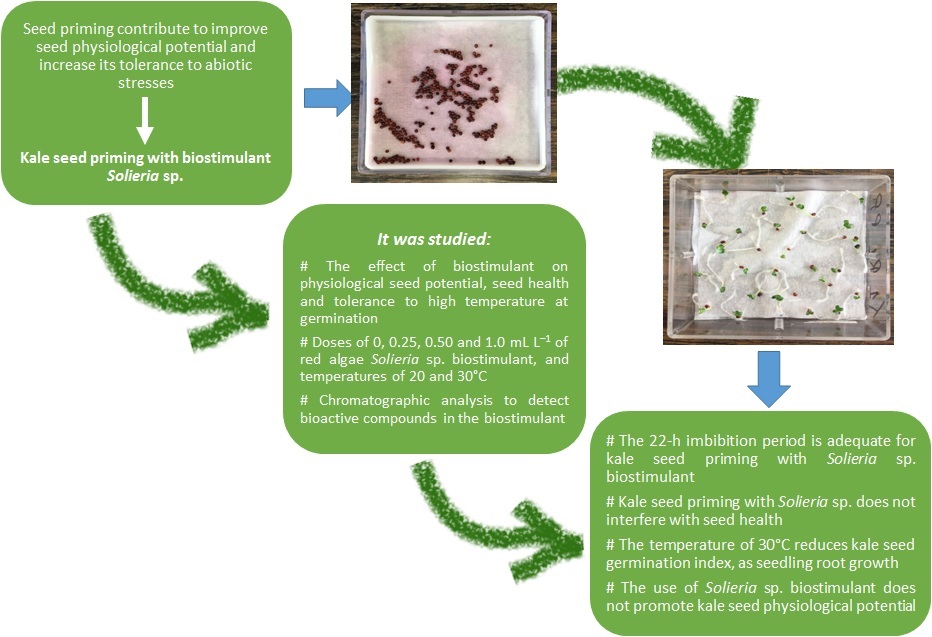
Published 2021-03-17
Keywords
- Brassica oleraceae var. acephala,
- germination,
- Rhodophyta,
- Solieria sp.,
- thermal stress
How to Cite
Abstract
Seed priming is a treatment that can contribute to improve seed physiological potential and increase its tolerance to abiotic stresses. Thus, this work evaluated the effect of kale seed priming with red seaweed biostimulant on physiological seed potential, seed health and tolerance to high temperature at germination. The experimental design was completely randomised, with a 2´x4 factorial scheme. Treatments consisted of doses of 0, 0.25, 0.50 and 1.0 mL L–1 of red algae Solieria sp. biostimulant, and temperatures of 20 and 30°C. The biostimulant used was subjected to chromatographic analysis to detect bioactive compounds. Seed imbibition curves were used to determine priming duration procedure. Treatments effects were evaluated by seed health, germination, root and shoot length, and dry mass, under ideal (20°C) and stress (30°C) temperatures. The results were submitted to analysis of variance, Tukey’s test (temperatures) and regression (doses). The 22-h imbibition period is adequate for kale seed priming with Solieria sp. biostimulant. Kale seed priming with Solieria sp. does not interfere with seed health. The temperature of 30°C reduces kale seed germination index, as seedling root growth. The use of Solieria sp. biostimulant does not promote kale seed physiological potential.





